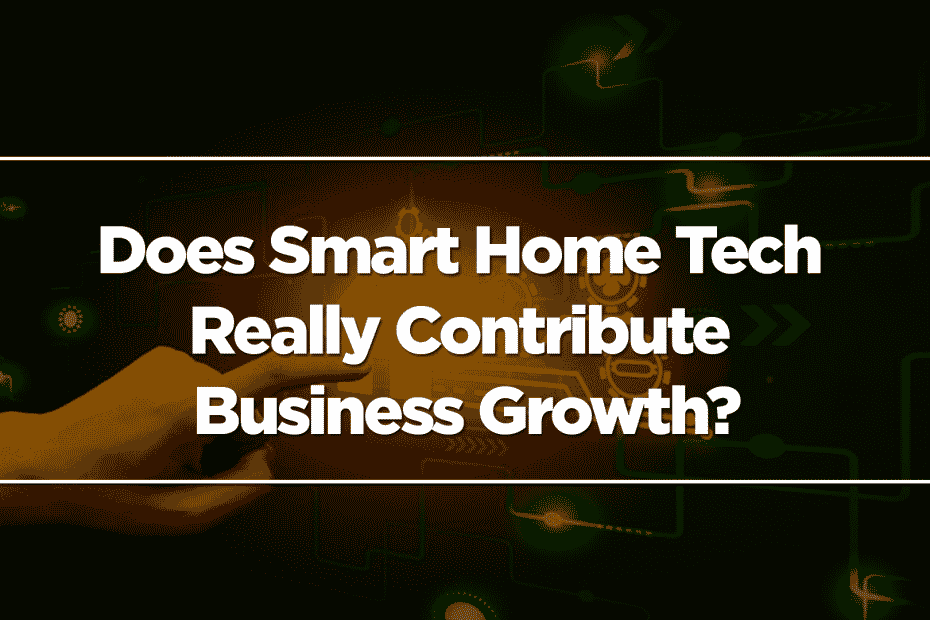Smart home tech gives homeowners a more comfortable lifestyle filled with conveniences. That’s why they are extremely popular now. But what others have not yet realized is how these devices can affect business.
Kent Dickson, a person knowledgeable about this subject, guested in the IoT For All Podcast to discuss this. He is the Vice President and General Manager of IoT Platforms and Services for Allegion. Before joining Allegion, he co-founded Yonomi, where he served as the CEO. It is a smart home hub that lives in your smartphone, giving you control over your smart devices.
Kent’s experiences include ten years of working on the smart home frontier. He partnered with leading device makers, voice assistants, AI innovators, and service providers throughout these years. So indeed, he is qualified to talk about this subject.
On the podcast, Kent talked about how smart products transitioned to aid businesses, particularly in home rentals.
The Future for Yonomi
Yonomi was founded in 2013; it is a unifying platform for smart home devices. Their team has been focused on residential smart home devices since then and until today. Kent said that they continued to care a lot about that for many years. And that is even the center of their focus.
Last year, Allegion acquired Yonomi, adding it to the family of products that include the Schlage Locks. Still, Kent says that Yonomi operates on its own. It has control of its brands and platforms.
Furthermore, Kent says that Yonomi will continue to push the bar forward on what they’ve always been working on. And inevitably, they will continue to go beyond residential into multifamily and then into commercial and industrial spaces.
The New Development in the Smart Home Technology Landscape
IoT For All Podcast Host Ryan Chacon notes that the smart home technology landscape has changed significantly. People use smart home devices to get a comfortable, luxurious lifestyle. Then, they discovered that you could use these devices to drive real business results for services operating in the home. And so, there is this transition that’s been happening in recent years.
Kent expanded on this. He says that consumers get a lot of value from smart home devices that surround them. For instance, the door in their house could automatically unlock when they arrive. Then the lights turn on, and music starts playing when they enter the house. Also, the temperature is the right temperature.
But Kent says there’s something more revolutionary than that. If businesses can leverage these smart home devices to create better products or services, it will change the outcome of our daily lives. And so, that’s where a lot of their attention is going.
How Business People Benefit From Smart Home Tech
They discussed how smart home devices could benefit those whose business allows others to rent vacation homes or apartments. These people can get value from the data that these smart devices collect. For one, they can use it to better the experience of the people utilizing their properties. Furthermore, they can use that data to save energy and other things.
Kent also said that smart home tech streamlines the processes for these businesses. They don’t need to hand a physical key to the people renting the place. Instead, they can send them the access code. Meaning there’s no need for physical meetings. That’s a thing they would be glad to remove from their schedules because it means less hassle.
Furthermore, they don’t need to produce duplicate keys for the cleaners. They can give them one-time access codes. That allows the business people to save money.
And speaking of saving money, smart home devices allow them to know whether the guest has checked in or out. And so the thermostat and other devices can adjust automatically.
Some of these establishments may remain vacant for a while. Therefore, their owners have to check them from time to time. With smart devices, they don’t need to do that as frequently. Smart devices that have sensors can inform them if there’s something wrong, like a leak. That’s when they should be visiting the condo, apartment, or vacation home to solve the issue.
So smart home tech offers a sense of security and efficiency. And that’s why these devices are beneficial to businesses.
The Direction Smart Home Tech is Heading
Ryan and Kent talked about where these trends in smart home tech will take us. Kent says that, of course, as has been discussed, they will allow people to live more comfortable lives. Then he mentioned the quote by Mark Andreessen: “Software is eating the world.” You see that in different markets. When software for that segment becomes better, it leads to innovations. And that’s what they are trying to do at Yonomi. Certainly, the other smart home tech companies are doing the same.
So, the smart home tech will pave the way to creating new businesses. Also, they will bring forth new ways to deliver services that are always around vacation home/apartment/condo rentals. In turn, these businesses will become more efficient and profitable. Of course, that also means better experiences for the consumers.
But it does not stop there. Other spaces, like the retail space, may be able to benefit from smart home devices. Likewise, schools, universities, and software-oriented startups may find some use for this type of tech.
Challenge of Interoperability
Technologies evolve really fast. So, the devices from different brands may use different protocols. That’s very apparent in the smart home tech scene. And that will remain the industry’s biggest problem.
Adding a device to your setup may not be so simple. You have to integrate it first, which could take time and effort. If the smart home tech industry can enable you to integrate each type of device once, that would be helpful. You do not need to do it for every device you add to the setup. So, perhaps the world can expect more platforms like Yonomi to pop up.
